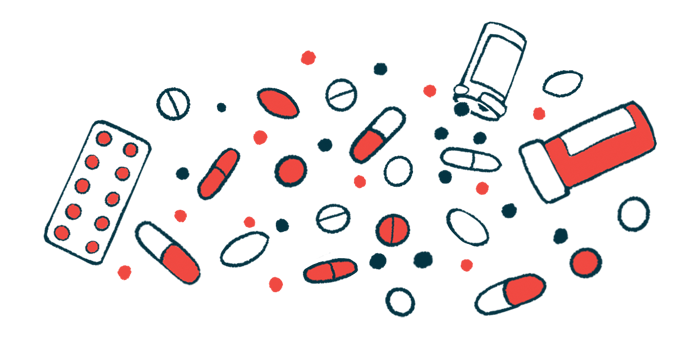SAGE-718 Showing Potential to Aid Patients’ Thinking, Memory in Trial

Early results from the Phase 2 clinical trial of oral SAGE-718 showed the investigative therapy’s use was associated with cognitive gains in people with mild impairment due to Parkinson’s disease.
These findings were presented at the AD/PD 2022 Advances in Science & Therapy International Conference on Alzheimer’s and Parkinson’s Diseases and Related Neurological Disorders, taking place March 15–20 in Barcelona.
The open-label and two-part PARADIGM study (NCT04476017) is evaluating the safety, tolerability, and efficacy of SAGE-718 in Parkinson’s patients with mild cognitive impairment. It is sponsored by Sage Therapeutics, which is developing the treatment.
In part A, 11 people, ages 50 to 75, with idiopathic Parkinson’s and cognitive difficulties were treated for two weeks with SAGE-718 given once daily as a 3 mg tablet. All underwent a battery of cognitive tests at the study’s start and again two weeks later.
Results showed significant improvements in measures of executive function — a set of skills that include working memory, flexible thinking, and the self-control that help to manage everyday life — after treatment. Emerging data also suggest the therapy aided patients’ learning and memory, Sage reported, as seen on tests that included pattern recognition and verbal memory.
These benefits appeared to be sustained at a follow-up 28 days (one month) after the study’s start. SAGE-718 was also generally well-tolerated in part A, with no treatment-related adverse events and no serious side effects of any sort recorded.
Part B of PARADIGM, fully enrolled and underway, is assessing the safety and efficacy of four weeks of daily SAGE-718 treatment in patients.
“Improving cognitive function is an area of significant unmet need in the management of Parkinson’s disease as it is estimated that up to 50 percent of people … are affected by cognitive changes, including mild cognitive impairment, that can result in loss of independence,” Jim Doherty, PhD, Sage’s chief development officer, said in a press release.
“We are encouraged by these preliminary data as they support our belief in the potential of SAGE-718 for the treatment of [mild cognitive impairment] in patients with [Parkinson’s],” he added.
Nerve cells that produce dopamine, a chemical messenger, are gradually damaged in the disease. Among dopamine’s many roles is the regulation of the brain’s N-methyl-D-aspartate (NMDA) receptors. These receptors are critical for proper communication between nerve cells — a process that mediates cognitive function.
It is thought that the damage to dopamine neurons affects cognition through the disruption of NMDA signaling.
SAGE-718 is a first-in-class oral therapy designed to modulate NMDA receptor activity. Sage believes the therapy could normalize NMDA signaling to help restore cognitive processes in Parkinson’s patients.
The PARADIGM study is part of Sage’s larger CogNEXT platform, designed to evaluate the therapy across a range of neurological disorders characterized by cognitive dysfunction.
Last year, the therapy was given fast track designation by the U.S. Food and Drug Administration to speed its development as a potential treatment of people with Huntington’s disease.
An ongoing and double-blind Phase 2 trial, called DIMENSION (NCT05107128), is evaluating whether about three months of daily treatment with SAGE-718 can help Huntington’s patients with mild to moderate cognitive impairment.
Further Phase 2 studies of SAGE-718 in Parkinson’s, Huntington’s, and Alzheimer’s may also begin this year, Sage reported.
“We look forward to learning more from our multiple, ongoing or planned placebo-controlled clinical trials in patients with [Parkinson’s] and other brain health disorders,” Doherty said.







